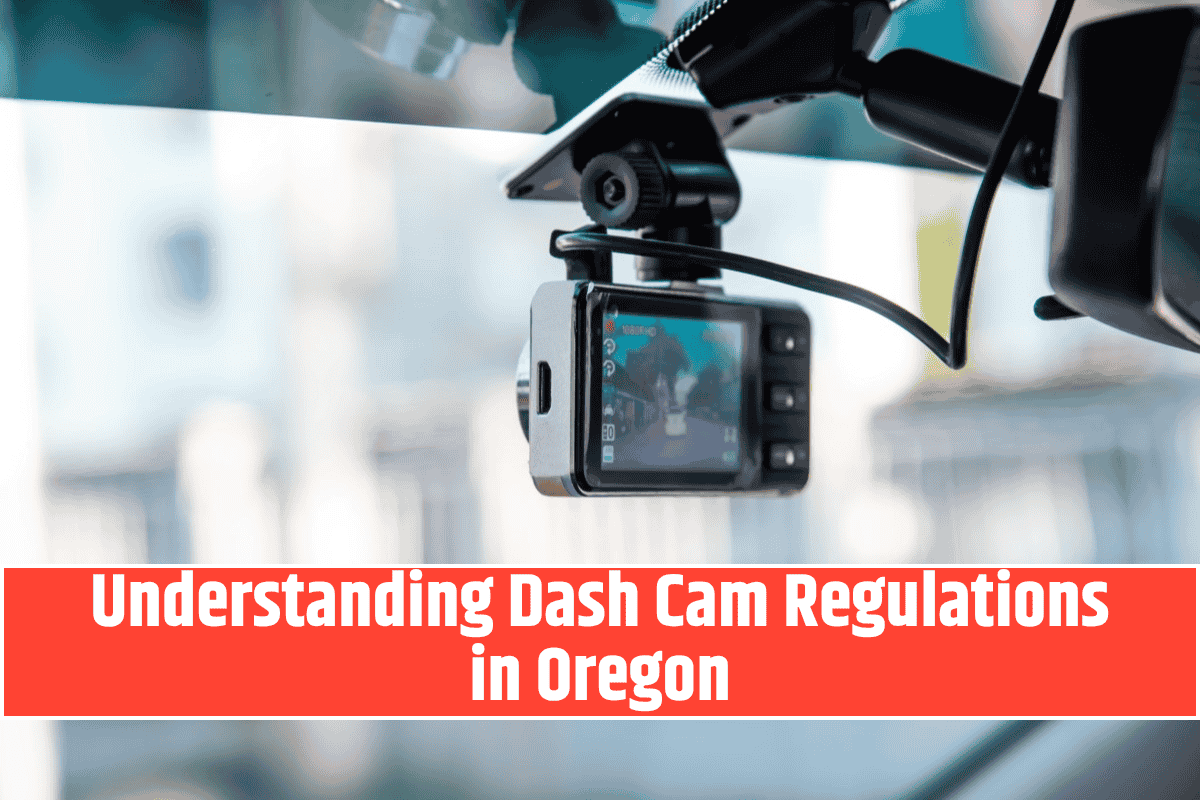Dash cams are becoming more common across Oregon as drivers look for ways to protect themselves, record road events, or simply capture scenic drives.
But with this rising use comes the responsibility to follow local laws—especially when it comes to privacy, proper installation, and sharing footage.
In this simple guide, we break down the key rules around dash cam use in Oregon so you can stay safe and legal on the road.
Are Dash Cams Legal in Oregon?
Yes, dash cams are legal in Oregon. There is no state law that bans the use of dash cams in private vehicles. However, how you mount, use, and record with your dash cam must follow certain legal and safety rules.
Let’s break them down clearly.
Windshield Obstruction and Mounting Rules
Oregon law (ORS 815.260) says that drivers cannot place anything on the windshield that blocks their view. This includes dash cams, GPS units, or any other devices that make it hard to see through the glass.
To follow the law:
Mount your dash cam on the dashboard
Or place it low on the windshield, outside your line of sight
Avoid mounting it in the center or top of the windshield where it could block your view
Using a dash cam that creates a blind spot can lead to traffic violations or fines.
Audio Recording Laws: Oregon Is a Two-Party Consent State
Oregon has strict privacy rules when it comes to recording sound. It is a two-party consent state, which means:
You must get permission from all parties in a conversation before recording audio.
So if your dash cam records sound inside your vehicle, everyone being recorded must know and agree to it. Otherwise, you could be breaking Oregon’s privacy laws.
To stay legal:
Turn off audio recording unless all passengers give permission
Tell your passengers if your dash cam has a microphone
Never record private conversations without consent
Can You Use Dash Cam Footage in Court?
Yes—dash cam footage can be used as evidence in Oregon, especially in cases involving:
Car accidents
Hit-and-run claims
Traffic violations
Reckless or dangerous driving
However, courts may choose whether to accept the footage. Judges look at things like whether the video is clear, relevant, unedited, and lawfully recorded. If you plan to use dash cam footage in a legal case, it’s best to speak with a lawyer.
Best Practices for Dash Cam Use in Oregon
To make sure your dash cam is helpful and legal, follow these simple best practices:
Mount it correctly – Use the dashboard or a low part of the windshield
Use audio carefully – Get consent before recording conversations
Keep your files secure – Save important clips and delete old or unnecessary ones
Avoid sharing sensitive footage online – Be cautious when posting clips that show faces, license plates, or private properties
Inform passengers – If your dash cam records audio or video inside the car, let people know
City-Specific Dash Cam Rules in Oregon
Most major cities in Oregon follow state law when it comes to dash cam use, but local interpretations or enforcement may vary. Here’s what to know:
Portland – Follows Oregon’s general rules; dash cams are legal when properly mounted
Eugene – No known extra dash cam laws
Salem – Complies with statewide regulations
Bend – Follows state rules for installation and recording
Still, it’s a good idea to check with your local city website or police department if you have questions about using dash cams in your area.
Why Use a Dash Cam in Oregon?
Oregon drivers use dash cams for several good reasons:
Accident protection – Video footage helps prove what really happened
Insurance claims – Speeds up the process and can help avoid blame
Prevent fraud – Protects against false claims or staged accidents
Scenic drives – Oregon’s landscapes are beautiful, and many drivers love recording road trips
No matter the reason, using a dash cam legally and responsibly makes driving safer for everyone.
In Oregon, dash cams are legal and useful—but only if you follow the rules. Avoid blocking your windshield, be careful with audio recordings due to Oregon’s two-party consent law, and respect the privacy of others.
When used correctly, a dash cam can be a powerful tool to protect your rights and provide clear evidence in case of an accident.
As dash cam technology improves and laws evolve, Oregon drivers should stay informed and use their devices responsibly.












